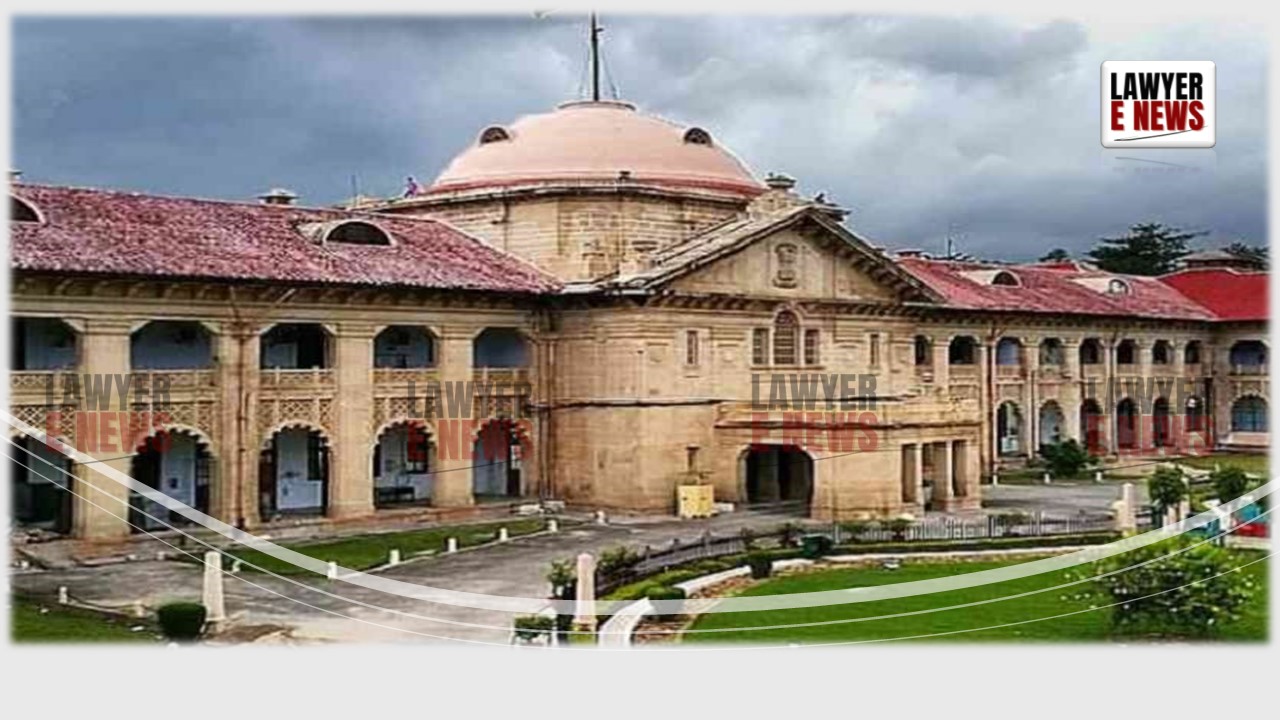-
by Admin
17 February 2026 2:34 PM



Suspicion, However Strong, Cannot Replace Proof: In a detailed and emphatic ruling Allahabad High Court upheld the acquittal of Harveer Yadav in a case involving charges under Sections 498-A, 304-B, alternative Section 302 IPC, and the Dowry Prohibition Act. The Court held that “prosecution has failed to establish cruelty or harassment in connection with dowry demand soon before the death of the deceased”, reaffirming the standard that “mere suspicion, however compelling, cannot substitute conclusive proof.”
The appellant, Sundar Singh, father of the deceased, had accused his son-in-law Harveer Yadav of murdering his daughter Reeta due to dowry-related harassment. Reeta was earlier married to Harveer’s elder brother, who died in a road accident in 2008, and was later remarried to Harveer. The prosecution alleged that Reeta was murdered on 19.06.2015 by strangulation and subjected to harassment due to lack of dowry. FIR was lodged on 20.06.2015 under Sections 304-B and 498-A IPC.
Despite these serious allegations, the trial court acquitted Harveer Yadav on 19.04.2022, finding the evidence insufficient. This prompted the father of the deceased to file a criminal appeal under Section 372 Cr.P.C.
The High Court examined whether the trial court’s acquittal was perverse or legally unsustainable. It reiterated that “the presumption of innocence is reinforced by an acquittal” and appellate courts should interfere “only where the findings are palpably wrong or manifestly erroneous.”
The prosecution, the Court noted, had “failed to bring home the charge of dowry demand.” The testimonies of PW-1 (complainant), PW-2, and PW-3 did not establish any clear instance of dowry demand or cruelty.
“There was no demand of dowry from the side of the accused,” the Court noted, highlighting that the key prosecution witnesses undermined the core of the prosecution’s case in their crossexaminations.
Further, the medical evidence contradicted the allegations of murder by strangulation. The postmortem report and the testimony of Dr. Amit Kumar (PW-4) revealed:
“There was no injury mark on the body, except a minor abrasion on the neck which was not fresh and could not have caused death.” The cause of death was eventually attributed to poisoning, not strangulation.
This completely destroyed the theory of homicidal death. The Court observed:
“The statement of PW-4 Dr. Amit Kumar contradicts the claim of strangulation. No finger or circular marks were found on the neck. Hence, the version of death by strangulation cannot be sustained.”
Even the claim of harassment through illicit relationships remained speculative, as the Court pointed out that: “No name, address or detail of any woman with whom the respondent was allegedly having an affair was ever brought on record.”
Reaffirming established jurisprudence, the Court cited the Supreme Court’s observation in Kali Ram v. State of H.P.: “If two views are possible on the evidence adduced in the case, one pointing to the guilt of the accused and other to his innocence, the view which is favourable to the accused should be adopted.”
The Court ruled that ”the prosecution failed to establish a proximate or live link between any alleged cruelty and the death of the deceased,” which is a necessary condition for conviction under Section 304-B IPC.
The Bench also rejected the appellant’s invocation of Section 106 of the Evidence Act. Citing State of Haryana v. Angoori Devi, the Court held: “Section 106 does not relieve the prosecution of its burden. It cannot be invoked to shift the burden of proof on the accused when the prosecution has failed to establish foundational facts.”
The Court found that the trial court’s acquittal was based on sound reasoning and consistent with the settled law. It held: “The prosecution has not proved the charges under Sections 498-A, 304-B, or the alternative charge under Section 302 IPC and Section ¾ of the Dowry Prohibition Act beyond reasonable doubt.” Accordingly, the appeal was dismissed with the finding: “We do not find any infirmity in the findings recorded by the trial court.”
Date of Decision: April 3, 2025
